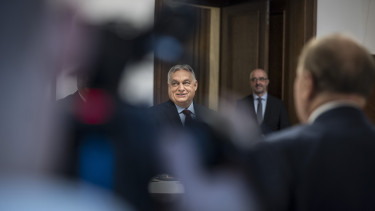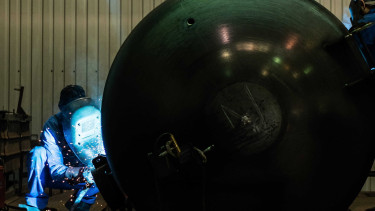Economy
Hungary displays straits of tax haven, EU report finds
The recommendations, adopted by 505 votes in favour, 63 against and 87 abstentions, were prepared over a year by Parliament’s Special Committee on Financial Crimes, Tax Evasion and Tax Avoidance (TAX3).
They range from overhauling the system to deal with financial crimes, tax evasion and tax avoidance, notably by improving cooperation in all areas between the multitude of authorities involved, to setting up new bodies at EU and global level.
One of the findings was that seven EU countries (Belgium, Cyprus, Hungary, Ireland, Luxembourg, Malta and The Netherlands) display traits of a tax haven and facilitate aggressive tax planning.
The recommendations include that
The findings include that:
Following continued revelations over the last five years (Luxleaks, the Panama Papers, Football leaks and the Paradise papers), the European Parliament decided to establish a Special Committee on Financial Crimes, Tax Evasion and Tax Avoidance (TAX3), on 1 March 2018.
The report adopted today concludes the committee’s year-long mandate, which saw it hold 18 hearings dealing with particular topics of interest, 10 exchange of views with finance ministers and European Commissioners, and four fact-finding missions - to the US, the Isle of Man, Denmark and Estonia, and Latvia.
They range from overhauling the system to deal with financial crimes, tax evasion and tax avoidance, notably by improving cooperation in all areas between the multitude of authorities involved, to setting up new bodies at EU and global level.
One of the findings was that seven EU countries (Belgium, Cyprus, Hungary, Ireland, Luxembourg, Malta and The Netherlands) display traits of a tax haven and facilitate aggressive tax planning.
The recommendations include that
- the Commission should start work immediately on a proposal for a European financial police force and an EU financial intelligence unit;
- an EU anti-money laundering watchdog should be set up;
- a global tax body should be established within the UN;
- golden visas and passports should be phased out, with those offered by Malta and Cyprus singled out for their weak due diligence;
- whistleblowers and investigative journalists must be much better protected and an EU fund to help investigative journalists should be set up.
The findings include that:
- there is a lack of political will in member states to tackle tax evasion/avoidance and financial crime;
- seven EU countries (Belgium, Cyprus, Hungary, Ireland, Luxembourg, Malta and The Netherlands) display traits of a tax haven and facilitate aggressive tax planning;
- Denmark, Finland, Ireland and Sweden criticised for maintaining their opposition to the digital services tax;
- several European banks have been involved in the Russian ‘Troika Laundromat’ money-laundering, including Danske Bank, Swedbank AB, Nordea Bank Abp, ING Groep NV, Credit Agricole SA, Deutsche Bank AG, KBC Group NV, Raiffeisen Bank International AG, ABN Amro Group NV, Cooperatieve Rabobank U.A. and the Dutch unit of Turkiye Garanti Bankasi A.S;
- the Netherlands, by facilitating aggressive tax planning, deprives other EU member states of EUR 11.2 billion of tax income;
- the cum-ex fraud scheme clearly shows that multilateral, not bilateral, tax treaties are the way forward.
Following continued revelations over the last five years (Luxleaks, the Panama Papers, Football leaks and the Paradise papers), the European Parliament decided to establish a Special Committee on Financial Crimes, Tax Evasion and Tax Avoidance (TAX3), on 1 March 2018.
The report adopted today concludes the committee’s year-long mandate, which saw it hold 18 hearings dealing with particular topics of interest, 10 exchange of views with finance ministers and European Commissioners, and four fact-finding missions - to the US, the Isle of Man, Denmark and Estonia, and Latvia.








